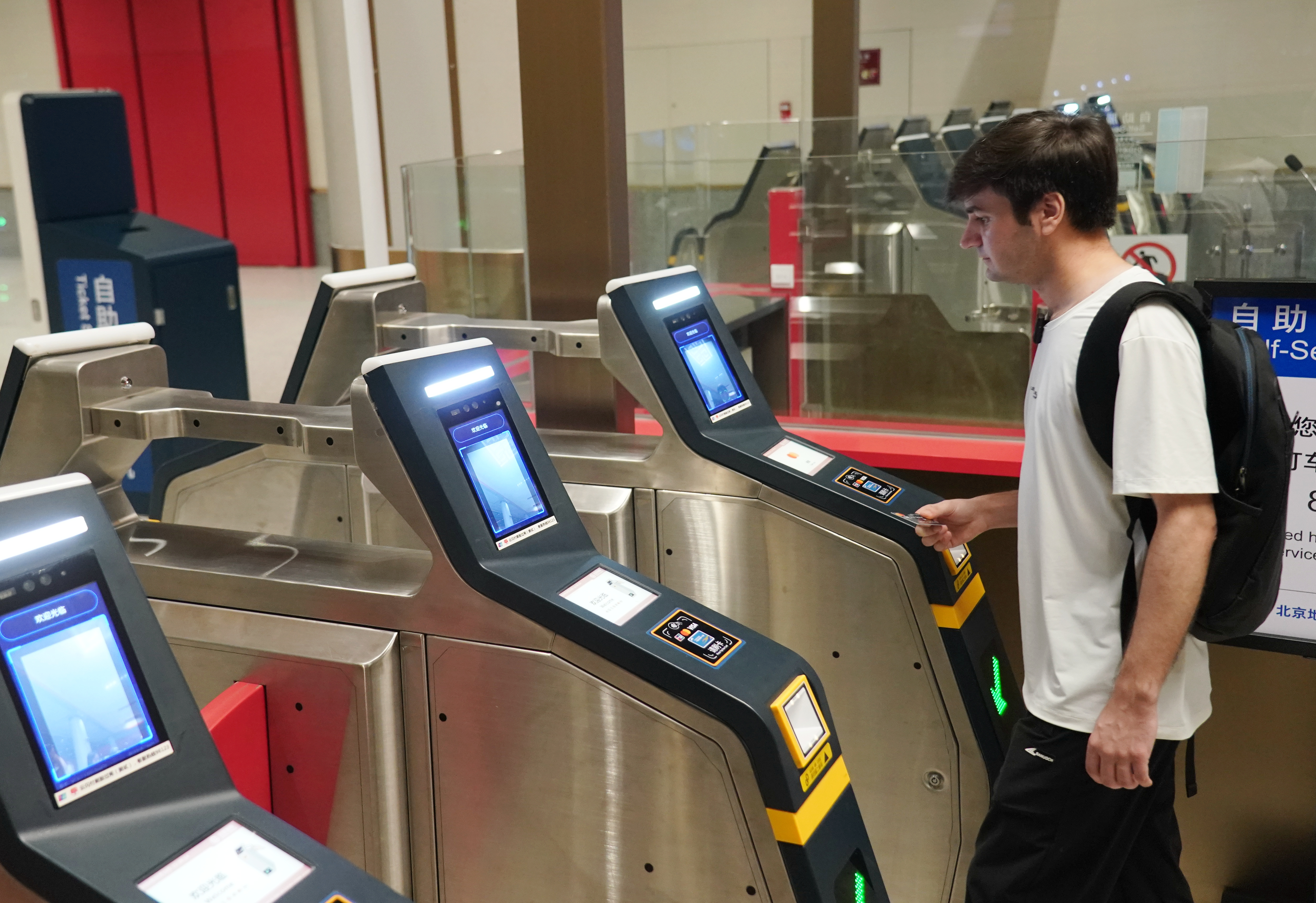It has been an exciting year for globetrotters as travel to and around China has never been easier. Whether wandering the willow-lined moat of Beijing's Forbidden City, marveling at the towering natural pillars of Zhangjiajie that inspired Avatar or immersing themselves in the urban cyberpunk vibe of Chongqing, travelers are enjoying a new wave of discovery and cultural connection unseen in years. This surge in travel is largely attributed to China's updated visa policies, particularly the expansion of visa exemptions introduced a year ago to boost global mobility after the pandemic. Starting on Dec. 1, 2023, visitors from France, Germany, Italy, the Netherlands, Spain and Malaysia could enter visa-free for up to 15 days for business, tourism, family visits, or transit -- without requiring reciprocal agreements. And the policy updates have kept coming. To date, with 38 countries now enjoying unilateral visa-free access, the opportunity for meaningful exchanges and visits has expanded, and the maximum stay has been doubled to 30 days as of Nov. 30. International travel to China has surged. In the third quarter of 2024, inbound trips by foreign nationals exceeded 8.1 million, an increase of 48.8 percent year on year. More than 4.8 million of them, or 59 percent, were under the expanded visa-waiver program. "Usually, this would be a slower season for tourism, but my schedule has been packed -- something I haven't seen, even before the pandemic," said Xia Chang, a tour guide since 2016, while leading a British tourist through Zhangjiajie in central China's Hunan Province. Huang Songshan, a professor at Edith Cowan University, highlighted the role of tourism in fostering people-to-people exchanges. He noted that the spike in inbound visitors driven by China's new visa-free policies could help "foster mutual understanding in an increasingly polarized world." While many visitors marvel at iconic landmarks and gleaming symbols of economic success in cities like Shanghai, Guangzhou and Shenzhen, a growing number are venturing beyond the typical to explore local traditions and everyday life. For Gudrun Thorsdottir from Iceland, her exploration of Shanghai led her to an unlikely destination -- a wet market. Captivated by the abundant array of produce and seafood on display, she exclaimed in amazement while holding up a crawfish. Iceland was added to China's visa-waiver program in early November, along with eight other countries including Slovakia, Norway and Finland. Local guides and tour operators are catering to these curious travelers with more immersive experiences. Wei Ying, a seasoned guide, now includes stops like the interiors of the Peace Hotel or the Shanghai Postal Museum in her tours, offering richer stories behind the city's landmarks. COMMITMENT TO OPENING UP Experts have lauded China for its confidence, openness and inclusiveness in its recent push for unilateral visa exemptions. "It sends a message that the world's second-largest economy is determined to open wider to the world," said Yang Mingjie, president of the China Institutes of Contemporary International Relations. They noted the cascade effects of visa-free policies, saying these initiatives could potentially facilitate freer flows of trade, transport, capital and information across borders, enhancing global economic connectivity. In a sign of greater financial opening up, China has made mobile payments more accessible for foreigners. Travelers can now link Visa, Mastercard and other major credit cards to local platforms like Alipay and WeChat Pay. In October alone, offline transactions made with foreign bank cards jumped by 184 percent from February, with their total value rising by 150 percent. The expanded visa waivers have been met with enthusiasm. During his visit to the country in November, Slovak Prime Minister Robert Fico described the development as a significant boon for young people and entrepreneurs in his country. "We are considering the possibility of launching direct flights between Slovakia and Beijing," Fico told media. Passenger flights to and from China had recovered to 81.7 percent of pre-pandemic levels as of the first half of 2024, according to the Civil Aviation Administration of China. Meanwhile, countries like France, Switzerland and Hungary have eased or planned to ease visa requirements for Chinese nationals. Ireland has welcomed Chinese investment, while Singapore extended visa-free access to Chinese travelers earlier this year -- a move analysts say reflects strong confidence in China. On Nov. 8, the first day the Republic of Korea's visa-free status took effect, over 200 Koreans landed in Hangzhou, the home of e-commerce giant Alibaba. A businessman surnamed Jeong credited the policy for making it easier to explore business opportunities in Yiwu, known as the "world's supermarket" for small commodities. BRIDGING INFORMATION GAP One of the critical things that prevent more Westerners from visiting China is a lack of information, according to Clayton Boylan, senior business manager at the World Tourism Cities Federation. He noted that many Americans still view China through a lens frozen in the 1960s and 1970s. Thanks to recent visa policy shifts, videos shot on the ground in China have begun to challenge that perception on platforms like YouTube, TikTok and X, revealing a country that contrasts sharply with what Western media has long portrayed. In one clip in May, a vlogger named Alex Cage left his MacBook and cash unattended at a café in Shanghai. Despite the hour-long wait, none of the passersby touched his belongings. "Everything is safe in China," he said in the video which has garnered wide attention on YouTube. Many first-time travelers leave China bewildered by how such a vast country of over 1.4 billion people can be so efficient; from hailing cabs to punctual trains. They are also surprised by the cleanliness of the streets and public transport, despite the constant hustle and bustle of large crowds. The Ministry of Foreign Affairs has reiterated the country's commitment to greater opening up. "We will continue refining our visa-free policies to enable more international friends to experience China," said Tong Xuejun, an official of the ministry's consular department. As snow blankets the blue lakes in Jiuzhaigou, transforming them into a winter wonderland, construction of snow and ice sculptures begins in a 1 million square-meter park in Harbin, one thing is clear: no matter the season, sometimes all it takes to escape the ordinary is a single ticket to China.
Visa policy eases boost China Travel and beyond
Editor:谭婕倪
Source:XINHUA
Updated:2024-12-02 16:47:47
Source:XINHUA
Updated:2024-12-02 16:47:47
Special
Contact
Welcome to English Channel! Any suggestion, welcome.Tel:0731-82965627
lisl@rednet.cn
zhouqian@rednet.cn














